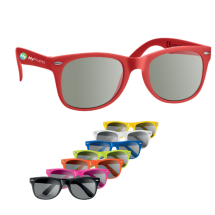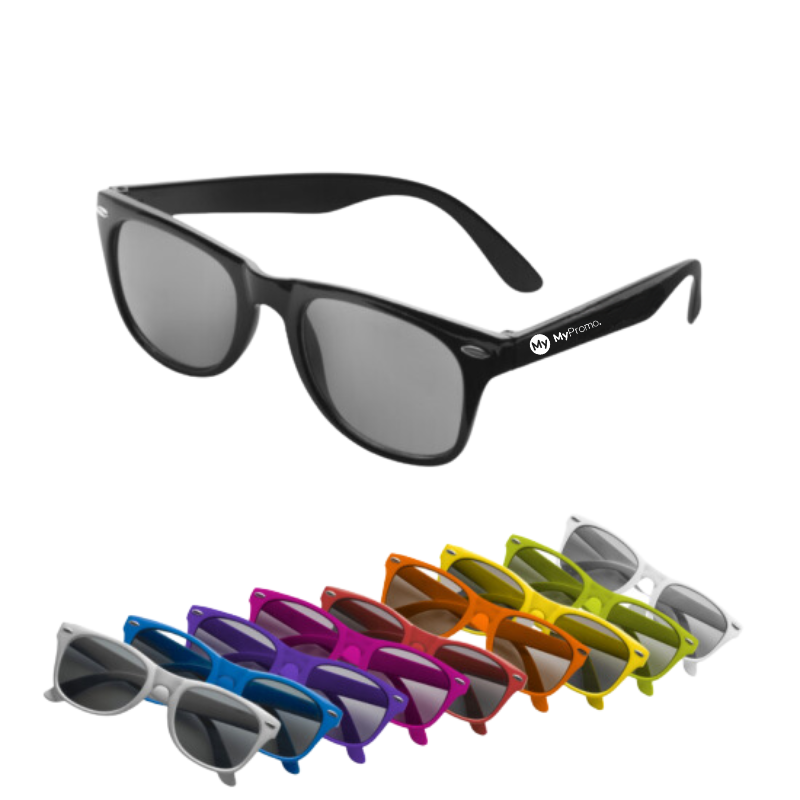PC
What is PC?
PC, or polycarbonate, is a highly durable and versatile plastic material extensively used in the manufacturing and promotional gifts industry. Known for its exceptional strength, transparency, and resistance to impact and temperature variations, PC is a crucial material in creating a wide range of products. Historically, polycarbonate was first discovered in the late 19th century, but it wasn't until the mid-20th century that it was developed into a commercial product. Since then, its applications have expanded significantly due to its unique properties.
Sourcing and Producing PC
Polycarbonate is produced through a chemical reaction known as polymerisation. The process begins with the extraction of raw materials, primarily bisphenol A (BPA) and phosgene. These materials undergo a chemical reaction in a controlled environment to form long polymer chains, creating polycarbonate resin. This resin is then melted and moulded into various shapes and sizes depending on the intended application. The production process ensures that PC retains its beneficial properties, making it suitable for a variety of uses.
Common Properties and Characteristics of PC
PC is known for its high impact resistance, making it ideal for products that require durability. It is also highly transparent, allowing excellent light transmission, similar to glass but much stronger and lighter. PC can withstand significant temperature fluctuations, maintaining its structural integrity in both high and low temperatures. It is also resistant to UV radiation and many chemicals, adding to its versatility. Additionally, polycarbonate is lightweight, easy to mould, and can be recycled, making it an environmentally friendly option in many applications.
Common Applications and Notable Examples
Polycarbonate is used in various industries due to its adaptable properties. In the electronics industry, PC is used to manufacture components like smartphone cases, computer parts, and optical discs. In the automotive sector, it is used for headlamp lenses, interior cladding, and various structural components. The construction industry uses PC for glazing applications, safety windows, and roofing. In the realm of promotional products, polycarbonate is popular for creating personalised items such as personalised water bottles, personalised keyrings, and durable promotional pens. Its ability to be easily shaped and printed makes it ideal for unique and eye-catching promotional gifts.
Advantages of Using PC in Manufacturing
One of the primary advantages of using polycarbonate in manufacturing is its durability. Products made from PC are highly resistant to impact and can endure significant wear and tear, which extends their lifespan. Its transparency and light weight make it an excellent alternative to glass, providing similar optical clarity without the risk of shattering. Polycarbonate's resistance to temperature changes and UV radiation makes it suitable for both indoor and outdoor applications. Additionally, its ease of moulding and customisation enhances its appeal for creating diverse and innovative products.
Comparison with Other Materials
Compared to other plastics like acrylic and polyethylene, polycarbonate offers superior strength and impact resistance. While acrylic is also transparent and lightweight, it is more brittle and prone to cracking under stress. Polyethylene, on the other hand, is durable and flexible but lacks the optical clarity and rigidity of polycarbonate. Metals provide high strength but are much heavier and prone to corrosion, whereas PC offers a balance of strength, lightness, and resistance to environmental factors. However, polycarbonate is more expensive than some other plastics, which can be a consideration for manufacturers.
Potential Challenges and Limitations
Despite its many benefits, polycarbonate has some limitations. The production of PC involves the use of bisphenol A (BPA), which has raised health and environmental concerns. Efforts are being made to develop BPA-free polycarbonate to address these issues. Additionally, while PC is recyclable, the recycling process can be complex and not as widely implemented as it is for other plastics. Polycarbonate can also be prone to scratching, which may require additional coating or treatment to maintain its appearance over time.
What is polycarbonate (PC) used for?
Polycarbonate is used in various industries including electronics, automotive, construction, and promotional products due to its strength, transparency, and versatility.
Is polycarbonate (PC) safe for use?
Polycarbonate is generally safe for use; however, concerns about bisphenol A (BPA) have led to the development of BPA-free alternatives to address health and environmental issues.
Can polycarbonate (PC) be recycled?
Yes, polycarbonate can be recycled, although the recycling process can be more complex compared to other plastics. Efforts are being made to improve recycling methods for PC.
How does polycarbonate (PC) compare to acrylic?
Polycarbonate is stronger and more impact-resistant than acrylic. While both are transparent and lightweight, acrylic is more brittle and prone to cracking under stress.
What are the benefits of using polycarbonate (PC) in manufacturing?
The benefits of using polycarbonate include its high impact resistance, transparency, light weight, resistance to temperature changes and UV radiation, and ease of moulding and customisation.


